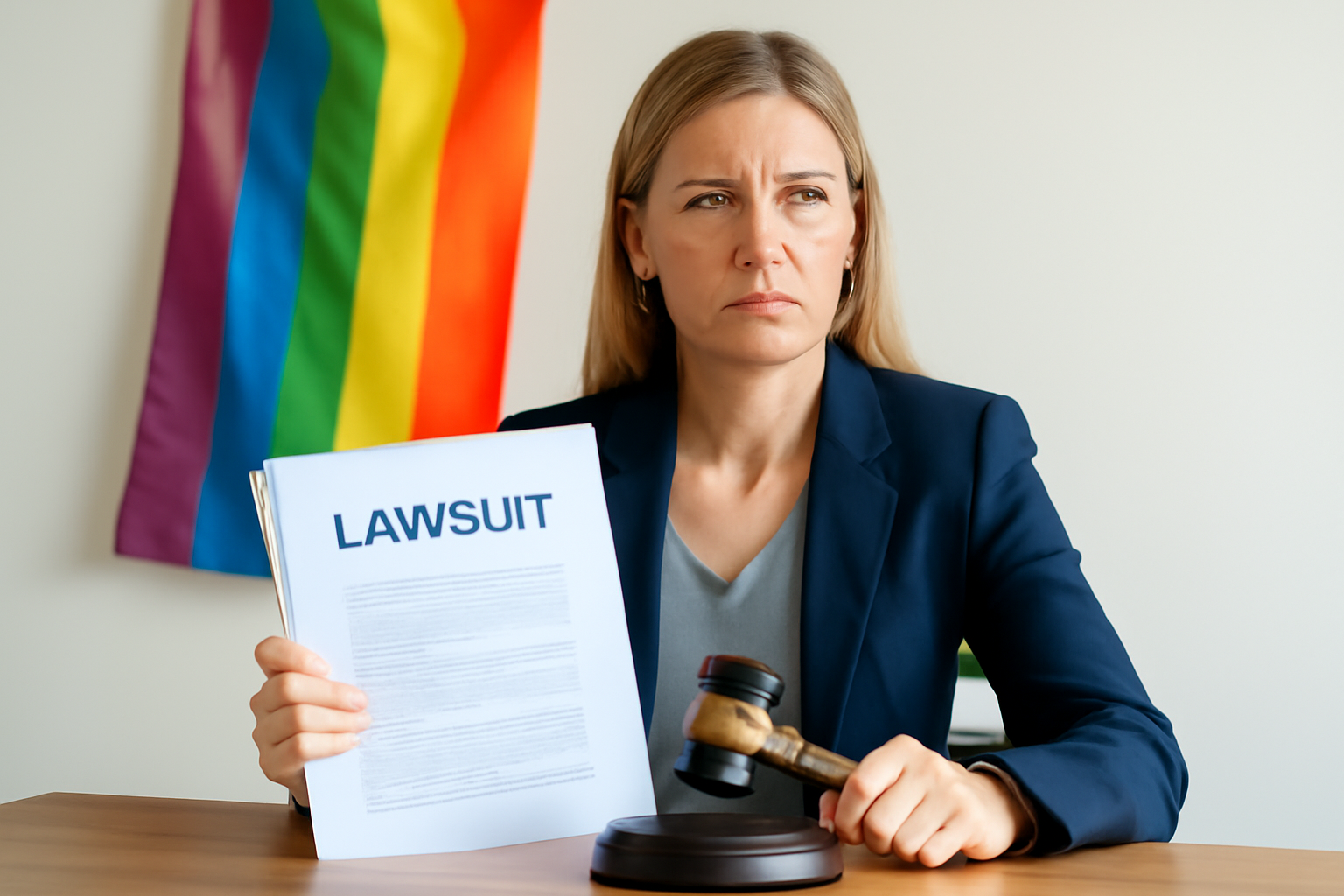
Supreme court takes on a pivotal reverse discrimination case
The U.S. Supreme Court has decided it's time they weigh in on a case that could shake up how we think about reverse discrimination. Marlean Ames, who's been working with Ohio's Department Of Youth Services but has since left, claims she faced discrimination at work. In her view, she lost out on a promotion and was later demoted because she was straight, while her allegedly less qualified gay colleagues got ahead.
The story behind Ames's allegations
Ames wasn't just any employee—her career at Ohio's Department Of Youth Services was marked by a series Of promotions and glowing reviews. But things took a turn in 2019. After applying For a top position as Bureau Chief Of Quality, she was left feeling "shocked, hurt, and humiliated" when passed over. Not long after, she was demoted, slashing her salary by $40,000. Ames believes her sexual orientation played a role, alleging she was sidelined For being heterosexual, while her gay counterparts rose up.
"That's when I started feeling like my being straight was why I was being discriminated against," Ames shared when talking about her experience.
The fight For justice
To challenge her treatment, Ames took legal action against Ohio's Department Of Youth Services, claiming they violated Title VII Of The Civil Rights Act Of 1964—a law protecting employees from discrimination based on race, color, religion, sex, and national origin. But Ames hit a roadblock when her case was dismissed by both a U.S. District Court and later by an appeals court. They said she didn't show enough evidence Of bias against majority groups. Ames thinks this sets an unfair precedent, creating a "higher burden" For majority individuals.
"Discrimination Is discrimination," Ames remarked. "Hopefully, this can help others who've faced similar situations get a fair shake in court without jumping through all these hoops."
Her lawyer, Edward Gilbert, argues that The law shouldn't divide plaintiffs by majority and minority status, which adds extra hurdles For majority groups. He believes The current system forces unequal application Of Title VII's principles Of workplace fairness.
What this could mean For discrimination law
The Supreme Court's review Of Ames's case could mark a turning point In anti-discrimination law across The U.S. Civil rights groups, like The NAACP Legal Defense and Educational Fund, have weighed In, urging The court To keep The historical experiences Of minority discrimination In mind. They say The "background circumstances" rule Is key For addressing deep-seated discrimination faced by marginalized groups.
Opponents Of Ames's case, however, caution that if she wins, it could open floodgates To reverse discrimination suits, especially as resistance grows against Diversity, Equity, and Inclusion (DEI) programs. Such initiatives have faced increased scrutiny, more so after ex-President Donald Trump pushed To cut DEI efforts from federal agencies.
As The legal field and employers keep a keen eye on what The Supreme Court decides, everyone understands The outcome could significantly change how employment discrimination Is approached in America. The decision could redefine how individual discrimination claims align with society's broader issues.
Related Posts
Triumphant Trans Woman Wins Legal Battle and Inspires Others to Stand Up for Their Rights
Breaking new ground: a landmark victory in transgender rights After battling in courtrooms and enduring endless challenges, Diana Portillo, a transgender woman, has secured a monumental victory in her decade-long fight against workplace discrimination. The result? Nearly $1 million awarded in a historic settlement. But this isn't just a win on paper—it represents a powerful precedent in combati [...]
Pride Month in Latin America: Protests and Demands for Equality
**Celebrating Pride and advocating LGBTQ+ rights in Latin America** Pride Month in Latin America was a lively mix where celebration met activism. Communities united, not just throwing a party but making a stand—demanding equality and pushing governments toward better protection and rights recognition. Throughout Latin America, pride events erupted in marches and cultural displays, each with a c [...]
Transgender Erasure Actions Implemented by National Park Service
```html Trump administration's impact on national park service and transgender recognition The Trump administration made notable moves in undermining transgender representation, which included directing agencies like National Park Service not include "T" and "Q" when they refered “LGBTQ” in any official communication. This move seems part a broader plan by this administration aimed at reducin [...]